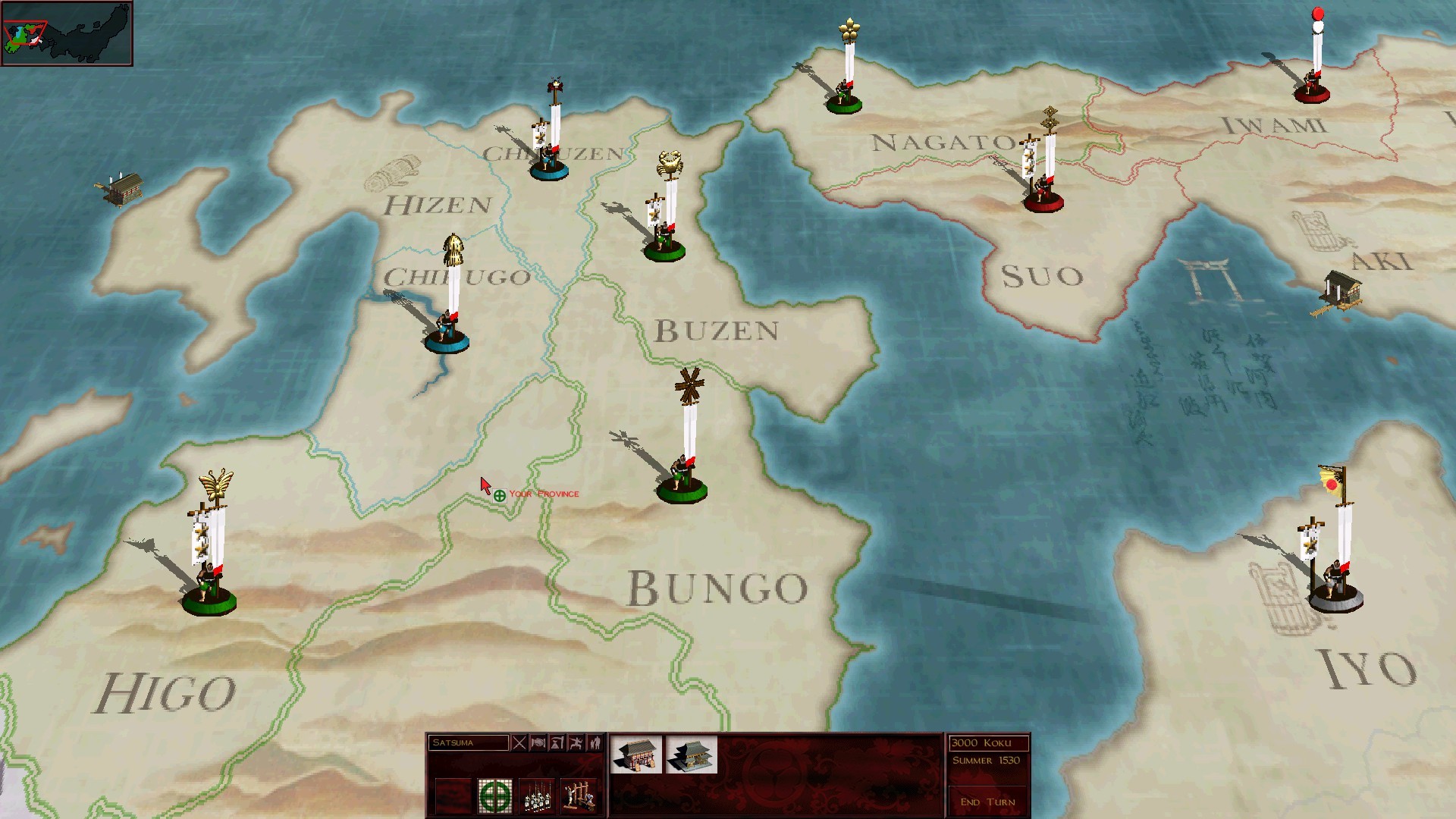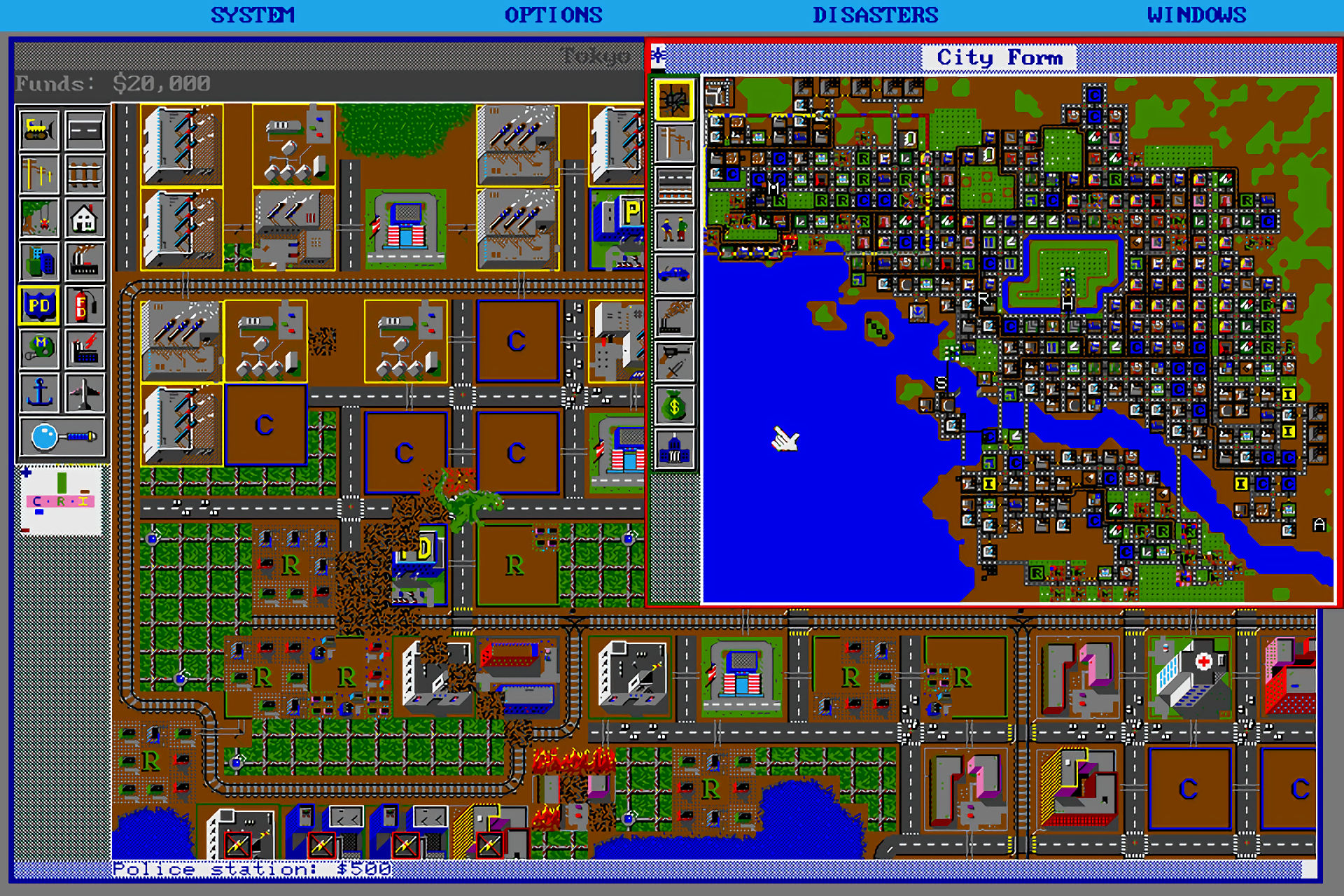After our comprehensive review of the latest Total War game, it seemed appropriate to take a stroll down memory lane and remember the first turn-based/real-time hybrid from Creative Assembly; Shogun: Total War.
Strategy gaming has held a special place in the hearts of gamers for decades. From the early days of PC gaming, players have embraced the challenge of shaping empires, commanding armies, and navigating the complexities of warfare and diplomacy. In this retrospective, we’ll delve into the world of Shogun: Total War, a title that not only played a pivotal role in the strategy gaming genre but also transported players to a unique historical setting – the Sengoku Jidai period, a tumultuous era in Japanese history.
A Glimpse into History
Shogun: Total War made its debut in the gaming world in the year 2000, and it was an instant standout. What set it apart from the multitude of other strategy games in the retro gaming landscape was its unswerving commitment to delivering a distinctive and historically rich gaming experience. By immersing players in the Sengoku Jidai period, a time of warring states that spanned from the 15th to the 17th century, Shogun: Total War unlocked the doors to medieval Japanese warfare, all from the comfort of one’s home.
The game’s primary objective was clear: unify a fractured Japan, mend the crumbled feudal system, and reestablish the rule of the emperor. This goal mirrored the historical context of the Sengoku Jidai period, where countless warlords vied for control of the nation.
While the game’s focus on war was evident, it’s essential to note that the actual historical period didn’t see a single leader emerge victorious. Instead, an uneasy cooperation among three rival warlords eventually brought about a fragile peace. Shogun: Total War managed to capture this nuanced history and presented it as a unique and engaging gameplay experience.
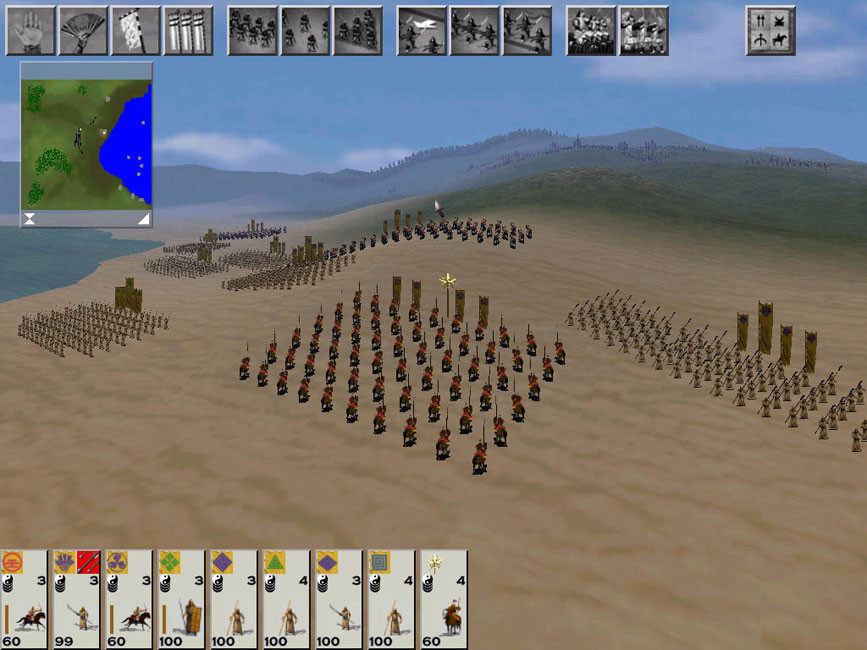
Immersive Gameplay and Early Graphics
Shogun: Total War was a pioneer in its use of early graphics cards to create an immersive gaming experience. Players were given the opportunity to choose from seven warring factions, and the game offered multiple modes of play, including the main campaign and a historical battle mode, allowing players to pit their armies against their enemies in historically accurate battles.
The campaign mode placed players in the role of a faction leader, and while it featured elements of espionage, alliance-building, and political strategy, the heart of the game was undeniably its battles. The ever-tenuous alliances often crumbled quickly, mirroring the unpredictability of warfare in that era.
Economics played a significant role in the game, with provinces generating koku as a resource. However, the game didn’t provide players with the luxury of invincibility. Just like in other great strategy games, Shogun: Total War forced players to make tough strategic decisions with limited resources.
The Greatness of Shogun: Total War
Shogun: Total War earned its place as one of the first truly great strategy games. It was a delight to play a game steeped in actual history, and its combat sequences were both remarkably accurate and detailed, especially for its time. The real-time 3D tactical battle sequences stood out as one of the game’s crowning achievements, offering a level of immersion and realism that was ahead of its time.
One of the most appealing aspects of the game was its portrayal of troops as fallible human beings. They could become fatigued and suffer from low morale, adding an extra layer of complexity to successfully leading an army to victory. The presence of seven different armies and various gameplay options ensured that players would find a challenge that would continue to engage them for an extended period. Once you mastered one configuration, there were numerous others to explore.
From a visual and technical perspective, Shogun: Total War stood out. The gameplay was smooth and well-constructed, and the cut scenes, groundbreaking at the time, have maintained their appeal even in today’s gaming landscape.
The Imperfections and Challenges
While Shogun: Total War was a shining gem in the world of strategy gaming, it was not without its imperfections. Some of these issues, though relatively minor, impacted the overall gameplay experience.
One such imperfection was the game’s thin backstory and the somewhat subdued diplomacy aspect. In the context of medieval Japan, intrigue and politics played a substantial role in warfare, but Shogun: Total War chose to place these elements somewhat in the background. While a deeper exploration of these aspects would have been welcome, the game compensated for their absence with its intense battles.
Another issue that affected gameplay was the lack of an easy way to change the direction in which your troops were facing. This limitation could make responding to surprise attacks a tricky and frustrating endeavor, as players struggled to maneuver their armies into position.
Furthermore, scouting options on the battlefield were limited, making it challenging to plan strategies and assign the right type of troops before a significant battle.
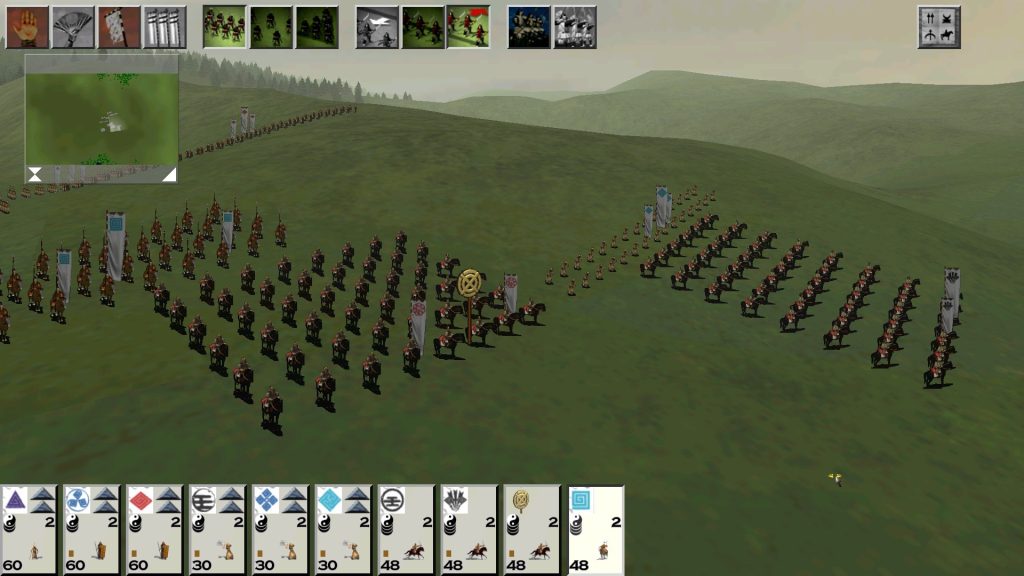
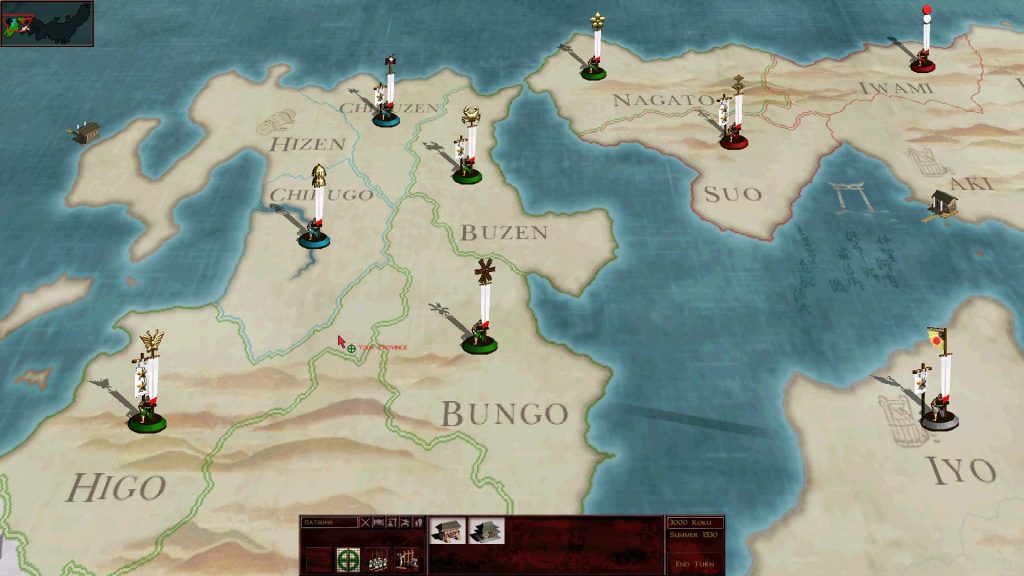
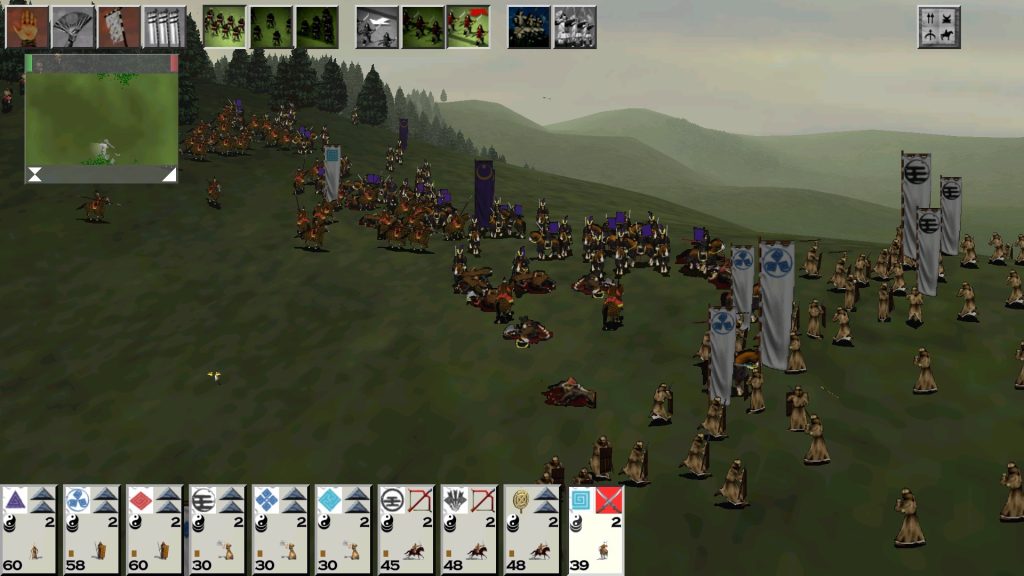
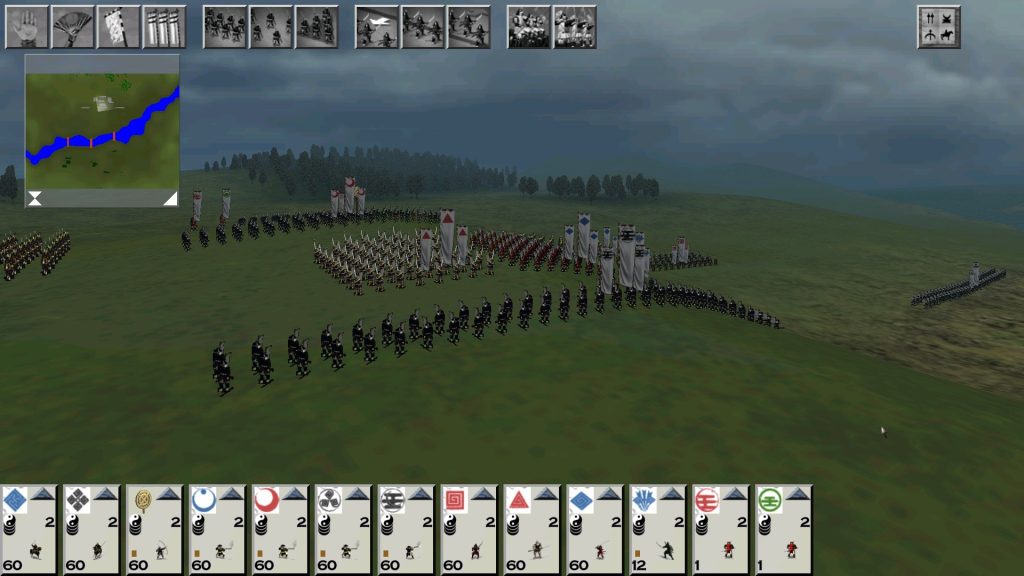
In spite of these minor imperfections, Shogun: Total War remained true to its promise of delivering an engaging and immersive gaming experience with a balanced mix of strategy and tactics. Its historical context, set in the turbulent Sengoku Jidai period, was a perfect fit for the strategy gaming genre. The game’s difficulty, even on its easiest setting, provided a welcome challenge for players who sought a true test of their skills.
This was not a game that offered participation trophies or mercy. It demanded dedication, practice, and a willingness to learn from one’s mistakes. It was an unforgiving teacher, making it advisable to save frequently while adapting to the gameplay. Even the seemingly insignificant errors could lead to devastating consequences, often necessitating the replaying of campaigns multiple times before achieving success.
Shogun: Total War was a game that players would find themselves returning to time and again. It offered lessons in resilience, strategic thinking, and the sweet taste of victory. It carved its place in gaming history as a pioneering strategy game that combined historical accuracy with engaging gameplay, setting a standard that many modern titles continue to uphold.
A Legacy in Modern Gaming
As we look back on the impact of Shogun: Total War, it’s worth considering how this classic title has influenced the strategy gaming landscape in the modern era. While the gaming industry has evolved significantly since Shogun’s release in 2000, some of its core elements continue to shape contemporary titles.
Shogun: Total War’s dedication to historical accuracy and immersive gameplay laid the foundation for modern strategy games. Many contemporary titles prioritize realistic combat sequences, detailed troop behaviors, and immersive battlefield environments. The emphasis on authentic historical settings and periods, popularized by Shogun, is a trend that continues to thrive.
Balancing Complexity and Accessibility
Shogun: Total War was known for its challenging gameplay, a characteristic that attracted dedicated strategy gamers. In today’s market, many strategy titles still follow this model, providing deep and complex gameplay that appeals to seasoned gamers while ensuring accessibility for newcomers. The delicate balance between complexity and accessibility that Shogun struck remains a guiding principle for game developers.
Engaging Historical Context
Shogun’s success in weaving historical narratives into gameplay has inspired modern strategy games to explore various historical periods and settings. Players can now experience the grandeur of ancient Rome, the turmoil of World War II, or the intricacies of medieval Europe, all within the framework of a strategy game. Shogun’s legacy is evident in the countless titles that transport players to different eras.
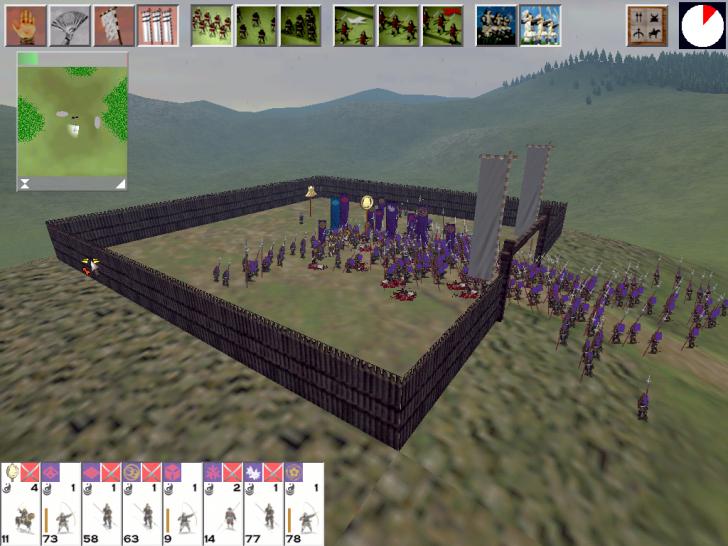

Evolving Graphics and Technology
Shogun’s early adoption of graphics technology set a precedent for the gaming industry. In the present day, modern titles push the boundaries of graphics and technology to deliver stunning visual experiences. The quest for realistic visuals, in-game physics, and intricate details owes a debt to Shogun’s pioneering approach.
The Enduring Legacy of Shogun: Total War
In the realm of strategy gaming, Shogun: Total War remains a cherished classic. Its immersive historical setting, challenging gameplay, and commitment to realism have left an indelible mark on the genre. As players and developers continue to explore the ever-expanding world of strategy games, they do so with a profound appreciation for the contributions and enduring legacy of Shogun: Total War.
While the gaming landscape has evolved significantly since Shogun’s release, its fundamental principles continue to inspire and inform modern strategy titles. It stands as a testament to the timelessness of a well-crafted gaming experience, where history, strategy, and immersion come together to create something truly exceptional.
As we reflect on this iconic title, we are reminded that, in the ever-changing world of gaming, the classics endure, and their influence continues to shape the future of the medium. Shogun: Total War, with its rich historical tapestry and unwavering commitment to strategic depth, will forever hold a special place in the hearts of gamers, both old and new.

